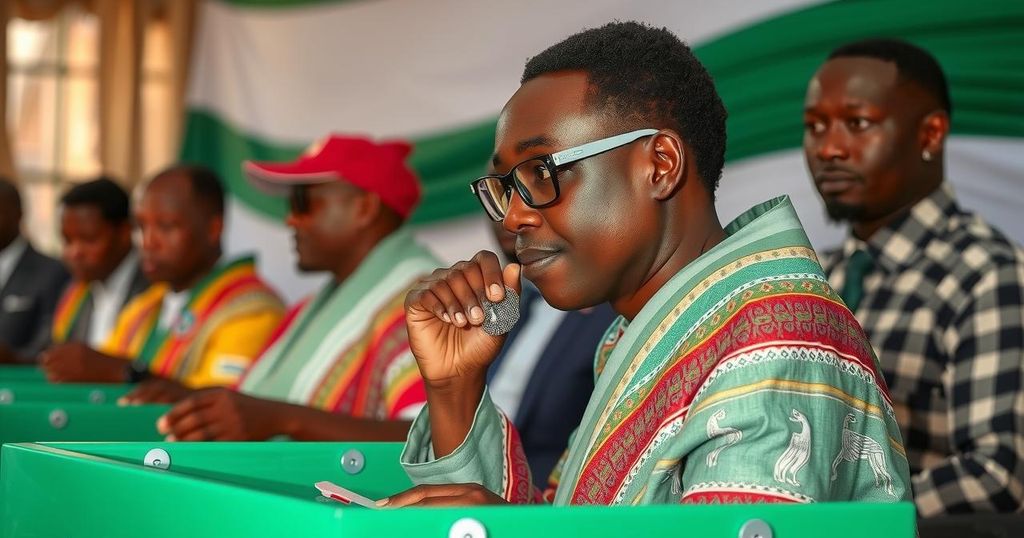The article contrasts Ghana’s successful 2024 presidential election, marked by transparency and smooth processes, with Nigeria’s troubled 2023 elections, characterized by technological failures and irregularities. It highlights the importance of efficient electoral management, public trust, and the need for reforms in Nigeria to restore confidence in its democratic processes.
The recent electoral victory of John Dramani Mahama, former president of Ghana, marks a significant milestone in the country’s democratic journey. The 2024 presidential election proceeded smoothly with the Vice President Mahamudu Bawumia gracefully conceding defeat, stating, “The people of Ghana have spoken, the people have voted for change at this time and we respect it with all humility.” This event not only highlights Ghana’s commendable electoral integrity but also draws a stark contrast with the challenges faced by Nigeria during its recent elections.
Widely recognized for its transparency and effective management, Ghana’s Electoral Commission ensured adequate logistics and comprehensive voter education, resulting in a successful electoral process. In contrast, Nigeria’s Independent National Electoral Commission (INEC) encountered numerous issues in the 2023 elections despite a staggering expenditure of N313.4 billion ($215 million). Reported technological failures and logistical inefficiencies tainted the credibility of the Nigerian elections, raising serious concerns regarding resource utilization and INEC’s operational conduct.
The underlying factors that set Ghana apart include meticulous planning, fiscal prudence, and fostering public trust in electoral institutions. Ghana’s modest election budget reflects a commitment to economic efficiency, while Nigeria continues to grapple with concerns about mismanagement and alleged corruption. Furthermore, Ghana’s EC has developed a reputation for reliability and stakeholder engagement over the years, thereby enhancing public confidence, which Nigeria’s INEC lacks due to past controversies.
The complexity of Nigeria’s electoral process, compounded by multiple simultaneous contests across various levels of government, has often overwhelmed INEC, leading to operational failures. In contrast, Ghana’s streamlined electoral approach minimizes logistical challenges and enhances efficiency.
As observed, the recent election results underscore the pressing need for Nigeria to address its systemic electoral shortcomings, prioritizing integrity and public trust in the democratic process. Without substantial reforms, the confidence of the Nigerian populace in its electoral mechanisms will remain jeopardized. While Nigeria is viewed as the giant of Africa, its failure to ensure credible elections remains a significant concern, unlike Ghana, which has demonstrated that effective electoral management is indeed achievable.
The article discusses the recent presidential election in Ghana, highlighting John Dramani Mahama’s victory and the efficient electoral processes that set it apart. It contrasts this success with Nigeria’s previous elections, which were plagued by irregularities and inefficiencies, raising questions regarding the country’s electoral management. By focusing on Ghana’s disciplined approach to elections, it prompts a discussion on the necessary reforms required in Nigeria to enhance public trust and credibility in its democracy.
In summary, Ghana’s recent electoral success showcases the importance of sound planning, efficient resource management, and public trust in elections. As Nigeria grapples with criticisms of its electoral process, emphasizing integrity and reform is critical. The divergence in electoral outcomes between these two nations highlights the pressing need for Nigeria to prioritize effective governance to restore confidence among its citizens. Ghana proves that credible elections can be realized through commitment to transparency, efficiency, and stakeholder engagement, thus presenting a pivotal model for Nigeria and other nations striving for democratic integrity.
Original Source: businessday.ng







